
-
 Rubio asks Qatar to stay as mediator after Israel strike
Rubio asks Qatar to stay as mediator after Israel strike
-
Drug cheats put India Olympic bid and careers at risk

-
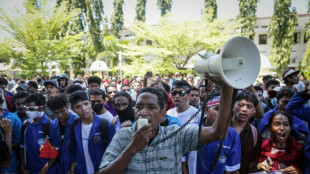 East Timor police fire tear gas on second day of car purchase protests
East Timor police fire tear gas on second day of car purchase protests
-
Austria hit with fresh spy claims after govt promises law change

-
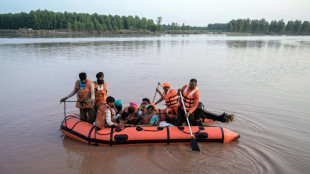 Floods devastate India's breadbasket of Punjab
Floods devastate India's breadbasket of Punjab
-
In mega-city Lagos, 20 million count on just 100 ambulances
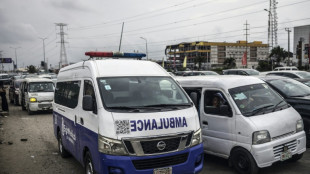
-
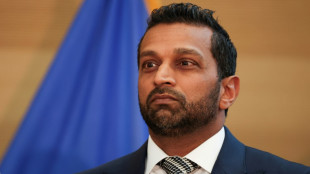 FBI chief Kash Patel faces Senate panel
FBI chief Kash Patel faces Senate panel
-
Trump says bringing $15 bn lawsuit against New York Times

-
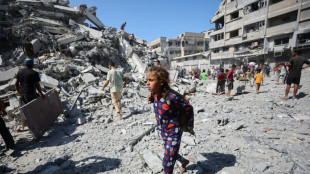 Israel sets Gaza 'on fire' as Rubio warns days left for deal
Israel sets Gaza 'on fire' as Rubio warns days left for deal
-
Phillies clinch first MLB division by beating Dodgers

-
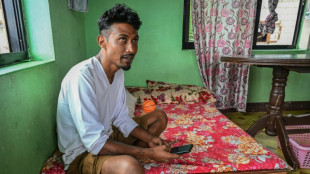 'Nothing here': Lack of jobs forces young Nepalis abroad
'Nothing here': Lack of jobs forces young Nepalis abroad
-
Rubio asks Qatar to stay as mediator after Israeli strike

-
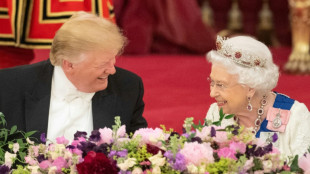 Trump set for unprecedented second UK state visit
Trump set for unprecedented second UK state visit
-
Lower US tariffs on Japan autos kick in
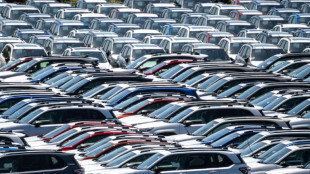
-
 Revamped Bayern face early test as Chelsea come to town
Revamped Bayern face early test as Chelsea come to town
-
Papua New Guinea, Australia to vow mutual defence in new treaty
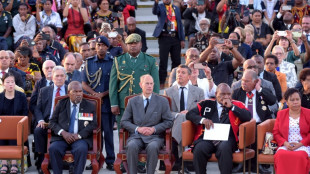
-
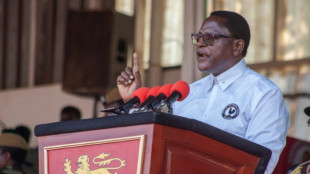 Malawi election a battle of two presidents
Malawi election a battle of two presidents
-
Asian markets rise as traders prepare for expected US rate cut
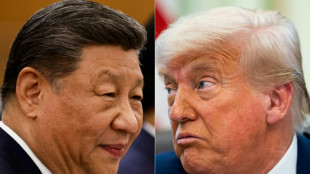
-
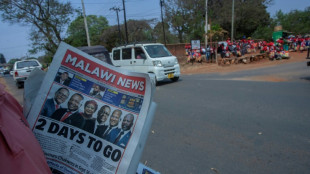 Malawi votes in a rematch between two presidents as economic crisis bites
Malawi votes in a rematch between two presidents as economic crisis bites
-
Australia says social media ban will not age test all users

-
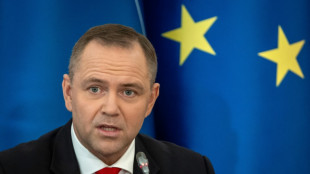 Poland's Nawrocki talks drone defence in Paris and Berlin
Poland's Nawrocki talks drone defence in Paris and Berlin
-
Trump's fossil fuel agenda challenged in youth climate suit
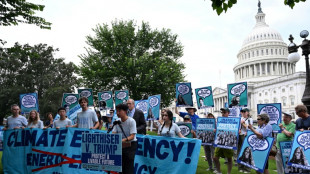
-
 PSG fear impact of injuries as they put Champions League title on the line
PSG fear impact of injuries as they put Champions League title on the line
-
Papua New Guinea, Australia will commit to mutual defence
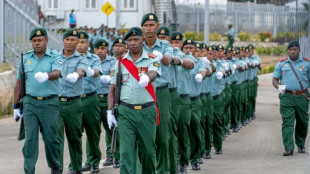
-
 Trash, mulch and security: All jobs for troops in Washington
Trash, mulch and security: All jobs for troops in Washington
-
NFL legend Brady to play in March flag football event at Riyadh

-
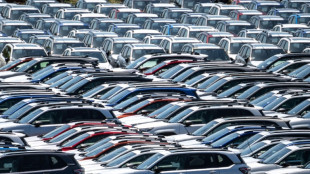 Lower US tariffs on Japan autos to take effect Tuesday
Lower US tariffs on Japan autos to take effect Tuesday
-
US strikes second alleged Venezuelan drug boat as tensions mount
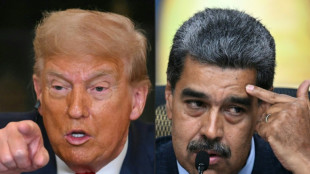
-
 Protesting Peru residents block trains to Machu Picchu
Protesting Peru residents block trains to Machu Picchu
-
US strikes another alleged Venezuelan drug boat as tensions rise
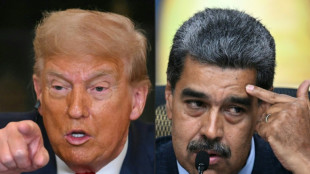
-
 White House vows to take on left-wing 'terror' movement after Kirk killing
White House vows to take on left-wing 'terror' movement after Kirk killing
-
Brazil's Amazon lost area the size of Spain in 40 years: study
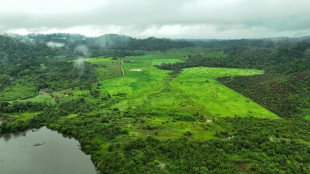
-
 US Senate poised to advance Trump aide's appointment at Fed
US Senate poised to advance Trump aide's appointment at Fed
-
Sri Lanka survive Hong Kong scare for four wicket Asia Cup win
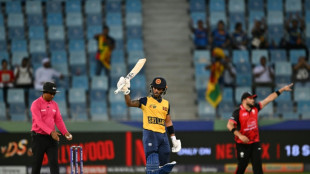
-
 Mbappe 'not anxious' over Champions League goal as Bellingham returns
Mbappe 'not anxious' over Champions League goal as Bellingham returns
-
Huge pot of Nigerian jollof rice sets Guinness record

-
 Heartbreak will help Arsenal's Champions League charge: Arteta
Heartbreak will help Arsenal's Champions League charge: Arteta
-
Europe stumped by Trump demands over Russia sanctions
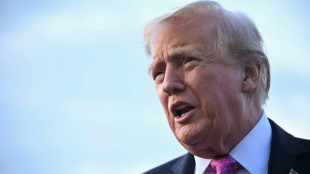
-
 Cycling fears spread of race-halting protests after Vuelta chaos
Cycling fears spread of race-halting protests after Vuelta chaos
-
'With our fists if necessary': Venezuelans prepare to defend homeland against potential US invasion

-
 Duplantis thrives on Tokyo energy to break world record again
Duplantis thrives on Tokyo energy to break world record again
-
Ex-France defender Umtiti calls time on club career

-
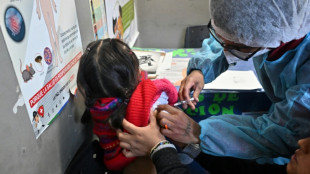 One in six US parents rejecting standard vaccine schedule: poll
One in six US parents rejecting standard vaccine schedule: poll
-
Sheffield Utd appoint Wilder for third managerial spell

-
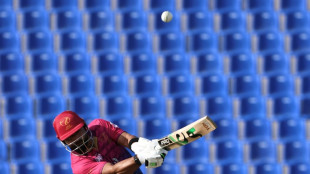 UAE hammer Oman in Asia Cup to keep Super Four hopes alive
UAE hammer Oman in Asia Cup to keep Super Four hopes alive
-
Activists on trial as France debates right to die
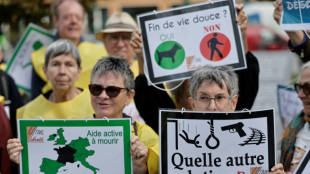
-
 Duplantis reaches new heights, Beamish makes Kiwi history at worlds
Duplantis reaches new heights, Beamish makes Kiwi history at worlds
-
Frank relishing Champions League debut with Spurs

-
 Spanish PM calls for Israel to be barred from international sport
Spanish PM calls for Israel to be barred from international sport
-
UK aristocrat, partner get 14 years for baby daughter's manslaughter


Western aid cuts cede ground to China in Southeast Asia: study
China is set to expand its influence over Southeast Asia's development as the Trump administration and other Western donors slash aid, a study by an Australian think tank said Sunday.
The region is in an "uncertain moment", facing cuts in official development finance from the West as well as "especially punitive" US trade tariffs, the Sydney-based Lowy Institute said.
"Declining Western aid risks ceding a greater role to China, though other Asian donors will also gain in importance," it said.
Total official development finance to Southeast Asia -- including grants, low-rate loans and other loans -- grew "modestly" to US$29 billion in 2023, the annual report said.
But US President Donald Trump has since halted about US$60 billion in development assistance -- most of the United States' overseas aid programme.
Seven European countries -- including France and Germany -- and the European Union have announced US$17.2 billion in aid cuts to be implemented between 2025 and 2029, it said.
And the United Kingdom has said it is reducing annual aid by US$7.6 billion, redirecting government money towards defence.
Based on recent announcements, overall official development finance to Southeast Asia will fall by more than US$2 billion by 2026, the study projected.
"These cuts will hit Southeast Asia hard," it said.
"Poorer countries and social sector priorities such as health, education, and civil society support that rely on bilateral aid funding are likely to lose out the most."
Higher-income countries already capture most of the region's official development finance, said the institute's Southeast Asia Aid Map report.
Poorer countries such as East Timor, Cambodia, Laos and Myanmar are being left behind, creating a deepening divide that could undermine long-term stability, equity and resilience, it warned.
Despite substantial economic development across most of Southeast Asia, around 86 million people still live on less than US$3.65 a day, it said.
- 'Global concern' -
"The centre of gravity in Southeast Asia's development finance landscape looks set to drift East, notably to Beijing but also Tokyo and Seoul," the study said.
As trade ties with the United States have weakened, Southeast Asian countries' development options could shrink, it said, leaving them with less leverage to negotiate favourable terms with Beijing.
"China's relative importance as a development actor in the region will rise as Western development support recedes," it said.
Beijing's development finance to the region rose by US$1.6 billion to US$4.9 billion in 2023 -- mostly through big infrastructure projects such as rail links in Indonesia and Malaysia, the report said.
At the same time, China's infrastructure commitments to Southeast Asia surged fourfold to almost US$10 billion, largely due to the revival of the Kyaukphyu Deep Sea Port project in Myanmar.
By contrast, Western alternative infrastructure projects had failed to materialise in recent years, the study said.
"Similarly, Western promises to support the region's clean energy transition have yet to translate into more projects on the ground -- of global concern given coal-dependent Southeast Asia is a major source of rapidly growing carbon emissions."
D.Schlegel--VB
